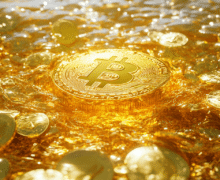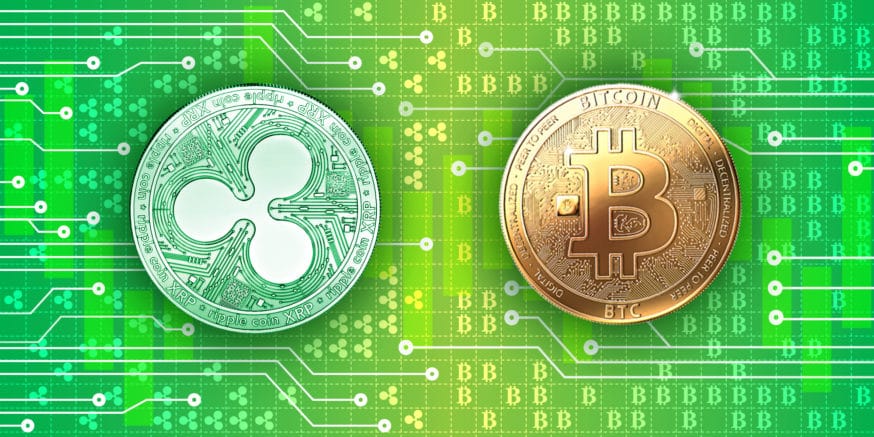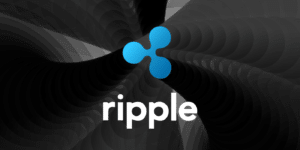- Ripple vs Bitcoin: Solving Different Problems
- So, What Exactly is Ripple?
- Ripple’s Key Specs and Features
- Ripple vs Bitcoin: Other Key Differences
- Mixed Market Feelings
- Final Thoughts
Ripple vs Bitcoin: Solving Different Problems
Although Ripple shares some similar characteristics with Bitcoin, it is a vastly different project. As a cryptocurrency, it uses cryptography to secure transactions, but it doesn’t actually have a public blockchain.
Instead, it has a network of nodes that validate transactions, but these are not necessarily anonymous P2P nodes, they are participating banks and financial institutions. Ripple’s coins, known simply as Ripple or XRP, were not mined into existence, they were simply issued.
And unlike Bitcoin which exists by virtue of a distributed network of participants, Ripple is not only the name of the coin, it is also the name of the company that developed the protocol. Unlike Bitcoin’s pseudonymous founder, Satoshi Nakamoto, the Ripple founders developed Ripple in the open, with Ripple even applying for and being awarded a New York BitLicense to operate.
So from the get-go, we see that this is an apples and oranges comparison.
So, What Exactly is Ripple?
Ripple is considered a bit of an oddity among cryptocurrencies because it doesn’t have its own public blockchain. Internally, the XRP Ledger network runs on an internal blockchain which they call an “Enterprise blockchain” ledger, it doesn’t use proof-of-work and little else is known about it.
Ripple was originally designed as an asset transfer system, for the purpose of sending instant and secure transactions across network participants. The idea was that anything digital of value could be transacted, including fiat, cryptocurrencies, commodities, even loyalty points and mobile credits. The native Ripple cryptocurrency token was added at a later stage of development and can be used for settling trades on the network.
Ripple certainly doesn’t share the cypherpunk roots of Bitcoin and other cryptocurrencies, but by this very virtue it was instantly more appealable to banks, financial intermediaries and institutional investors seeking digital payments solutions.
Ripple received angel funding to develop its protocol. Early round investors include finance industry giants such as Andreessen Horowitz, Pantera Capital, Google Ventures, IDG Capital Partners and Santander InnoVentures.
Not being a typical blockchain and being managed by a company, it doesn’t really make sense to compare Ripple with Bitcoin, feature for feature. Ripple being centrally controlled, and with Bitcoin being a decentralized blockchain, there is not much of a point pitting them as rivals. If anything, similar to other networks like Counterparty and Omni, Ripple can be looked at as it’s own independent platform which may even complement the Bitcoin and other cryptocurrency networks. For instance, you can store, send and receive other currencies on the Ripple network. These balances are held in accounts, unlike XRP which is the native currency with no counterparty risk.
The Ripple project actually pre-dates the Bitcoin blockchain, and their mission from the beginning was not to offer an alternative to the world’s financial system, but rather to upgrade it and bring it out of the dark ages.
Ripple’s Key Specs and Features
- Instant Payments – The global payments infrastructure was built before the internet became commercially widespread. The key payments interbank settlement happens on the international SWIFT network and also on some smaller national networks more locally. Transfers and settlements can take a matter of days, and this is frightfully embarrassing in the digital age. By contrast, Ripple payments can bounce around the globe almost instantaneously.
- B2B Friendly Focus – as a company, Ripple is interested in engaging key players in the financial industry including banks and financial services providers. The network offers instant cross-border remittances and payments. All transactions on the Ripple network are designed to be compliant with the bank’s risk and privacy requirements. Anti-money Laundering (AML) and Know Your Customer (KYC) anti-terrorism compliance is built into each transaction.
- Full End to End Payments Service – A bank could use the Ripple network to send a cross-border payment directly from the sending customer’s bank account through to the receiving customer’s bank account on the other end. The Ripple network can handle the whole transaction, including the foreign exchange conversion. The Ripple network can also instantly calculate the cost of the transaction down to the nearest cent, and signal the both participating banks when the end customer have received their deposit for both banks to update their customer’s accounts.
Ripple vs Bitcoin: Other Key Differences
| Ripple | Bitcoin | |||
| Market Data | ||||
| Release Date | 2012 | 3rd January 2009 | ||
| Hash Algorithm | SHA512 (SHA 2 based) | SHA 256 (SHA 2 based) | ||
| Block Generation | n/a | ~10 minutes | ||
| Max Coins | 100 Billion XRP | 21 Million BTC | ||
Ripple payments are near instant as they are validated by Ripple nodes. Unlike Bitcoin, the Ripple currency is issued by Ripple Labs and not minted into blocks. To date, 38 Billion of the currency is circulating.
The eventual supply of Ripple will far exceed Bitcoins total coins by orders of magnitude. This is reflected in its price when you compare the relative scarcity of the two coins, that is Ripple’s 100 Billion coins versus Bitcoin’s 21 Million. At the time of publication, the Ripple currency was only a fraction of that of Bitcoin sitting at just under USD $0.22 cents. Even so, Ripple commands 3rd position in the overall market cap.
All 100 Billion XRP have been created. Of the 100 Billion, the founders of Ripple retained 20 Billion, with the remaining 80 Billion XRP allocated to Ripple Labs. Of these, only 38 Billion XRP have been released so far.
Ripple is super fast compared to Bitcoin and is able to perform 1000 transactions per second, compared to Bitcoin’s 3 tx/sec, and it can finalize an international transaction in 3 seconds, compared to the average block confirmation time of 10-minutes for Bitcoin.
Mixed Market Feelings
Cryptocurrency enthusiasts have had mixed feelings about Ripple from the very start.
Ripple has a very specific focus, and that is for it to be adopted by the banking system for cross-border, interstate and interbank payments and remittances. Ultimately, Ripple aims to be used in place of the interbank SWIFT network. Because of this, the price of Ripple is heavily influenced by any news that relates to bank adoption.
It is a cheap coin, so it has a massive upside potential. If it manages to become the bank’s choice of crypto, it will likely soar in value. But for Ripple fans, this event is sorely overdue and as time goes on, other competitors are also lining up to claim the same title. Ripple is already in live beta phase with 75 banks, and yet it is not the only project competing for the bank’s attention, with Digital Asset Holdings using Hyperledger technology and the R3 Consortium being the most well-known leading a pack of ‘would be’ blockchain-for-banks solution providers.
Final Thoughts
Ripple has solidified as a top 5 cryptocurrency and is almost as well known as Bitcoin. Regardless if Ripple becomes the number one blockchain-for-banks or not, there are plenty of other applications for its technology. Unlike Bitcoin, it is business friendly as it complies with regulation. While Bitcoin relies on user adoption, Ripple is aiming for more widespread adoption in daily commerce. This makes it more attractive to investors that view cryptocurrencies like Bitcoin as vulnerable to future regulatory battles and therefore not likely to be adopted for general commerce.
If Ripple does manage to become the darling of the banks, its modest 20c price could quickly move into the dollars and eclipse the market cap of Bitcoin. So if you are looking for something with a potential massive upside, Ripple is certainly one to closely watch.
Never Miss Another Opportunity! Get hand selected news & info from our Crypto Experts so you can make educated, informed decisions that directly affect your crypto profits. Subscribe to CoinCentral free newsletter now.










